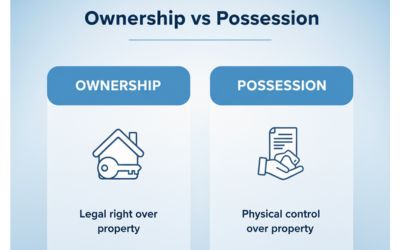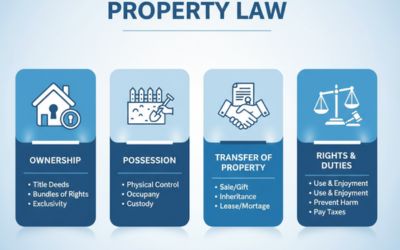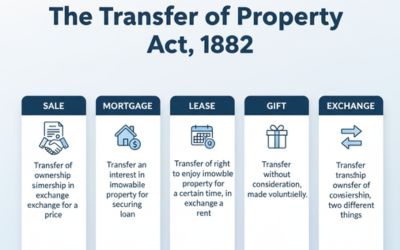Guruswamy Nadar v. P Lakshmi Ammal through LRs & Ors (2008)
Lis pendens and later buyers—when a property is sold while a suit for specific performance is already in court.

Quick Summary
The Supreme Court explained lis pendens (Section 52 TPA): if a property is sold while a related suit is pending, the later buyer takes it subject to the court’s final decision. Here, the later sale could not defeat the first buyer’s claim for specific performance filed before completion of the second sale.
Issues
- What is the effect of lis pendens on a later purchaser of the same property?
- Is the subsequent buyer bound by the decree in a specific performance suit filed earlier?
Rules
- Ordinarily, a court’s decision binds only the parties to the suit.
- Under Section 52 TPA, a person who buys during pendency is also bound; their rights are subservient to the rights being fought out in court—not wiped out, but subject to the outcome.
Facts (Timeline)
View image
Arguments
Appellant (Subsequent Purchaser)
- Bought in good faith; should not lose title because of earlier dispute.
- Decree should bind only the original parties to the contract.
Respondent (First Purchaser)
- Suit was already filed; lis pendens applies.
- Later buyer takes the property subject to the court’s decision on specific performance.
Judgment
The Supreme Court held that although the second purchaser acted in good faith, lis pendens squarely applied because the sale took place after the suit had been filed. The later sale could not overturn the earlier contractual right sought to be enforced.
- Decree binds the subsequent purchaser as a person claiming through a party during pendency.
- Rights of the later buyer are subject to the outcome; they are not erased, but cannot defeat the earlier claim.

Ratio Decidendi
Section 52 TPA prevents parties from defeating court proceedings by transferring the property during litigation. A transferee pendente lite is bound by the result and cannot claim a better right than the litigating transferor.
Why It Matters
- Protects the integrity of pending suits over property.
- Warns buyers: check for ongoing litigation before purchase.
- Clarifies that later sales are valid but subordinate to the court’s decree.
Key Takeaways
- Pendency controls: Buy during a suit; you are bound by its result.
- No defeat of rights: Later sale cannot overturn earlier contractual claims.
- Good faith is not enough: Timing of suit vs sale is crucial.
Mnemonic + 3-Step Hook
Mnemonic: L-I-S — Lawsuit on, Interest passes subject, Subordinate rights for later buyer.
- Check if a suit is already filed.
- Assume later buyer takes subject to the suit.
- Proceed knowing decree will bind the later buyer too.
IRAC Outline
Issue
Effect of lis pendens on a later sale executed after a specific performance suit is filed.
Rule
Section 52 TPA binds transferees pendente lite; their rights are subordinate to the litigation outcome.
Application
Later buyer purchased after suit was filed; hence is bound by the decree obtained by the first purchaser.
Conclusion
Lis pendens applies; later sale cannot defeat the first buyer’s right to specific performance.
Glossary
- Lis Pendens
- A rule that transfers made during a pending suit do not affect rights being decided in that suit.
- Specific Performance
- Court order directing a party to perform a contract instead of paying damages.
- Transferee Pendente Lite
- A person who buys or receives property while a relevant case is still in court.
FAQs
Related Cases
Jayaram Mudaliar v. Ayyaswami
Classic statement on Section 52 TPA and effect on transferees during litigation.
Bellamy v. Sabine
English root case explaining the purpose of lis pendens doctrine.
Share
Related Post
Tags
Archive
Popular & Recent Post













































































































Comment
Nothing for now